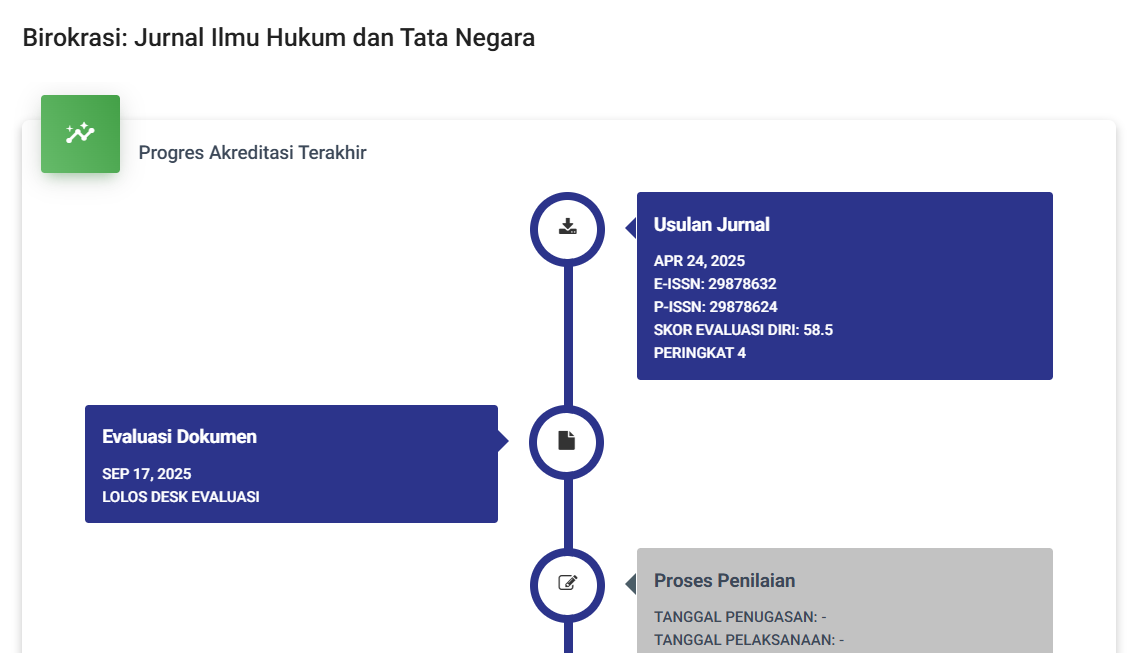Analisis Penyelesaian Sengketa Perbatasan Laut Indonesia Dan Vietnam Di Perairan Zee Indonesia Dalam Perspektif Hukum Internasional
DOI:
https://doi.org/10.55606/birokrasi.v2i2.1196Keywords:
Disputes, Maritime Borders, International LawAbstract
The occurrence of maritime border conflicts between Indonesia and Vietnam in the northern Natuna region was triggered by the development of Exclusive Economic Zone boundary negotiations between the two countries Vietnam has a desire to equate the ZEE with the boundaries of the Continental Shelf Zone. In accordance with UNCLOS 1982, Indonesia opposes because Vietnam is not part of an archipelagic state. On the other hand, Indonesia's claim to Natuna is based on the withdrawal of the archipelagic base line on the grounds that Indonesia is an archipelagic state. In contrast, Vietnam is not an archipelagic state and uses the coastal base line in determining its maritime zone. Exclusive Economic Zones Both countries have overlapping ZEE claims in the South China Sea This overlap has led to maritime disputes between Indonesia and Vietnam Economic Activity The South China Sea is rich in natural resources, such as oil and gas Competition for access to these resources complicates the dispute. Not only that, the conflict can also trigger diplomatic tensions between the two countries, thus affecting Indonesia-Vietnam bilateral relations. The settlement of the Indonesia-Vietnam dispute was resolved peacefully by conducting technical negotiations 9 times and producing an agreement between the two countries. Based on Article 280 of the 1982 UNCLOS, Article 280 of the 1982 UNCLOS also confirms that peaceful means shall not in any way prejudice the rights of any Contracting States. Within the framework of UNCLOS 1982, there are alternative forms of conflict resolution, namely peaceful conflict resolution and conflict resolution through mandatory procedures.
References
Adi Supriyo, D. (2023). Konflik Perbatasan Indonesia Dengan Vietnam Di Perairan Zona Ekonomi Ekslusif Indonesia.
Afifi Alfaridzi Afifi, M., Afifi Alfaridzi, M., Masjid Al Gazali, J., Lama, B., Ilir Barat, K. I., & Palembang, K. (2024). Dinamika Penyelesaian Konflik Indonesia Dengan Vietnam Terkait Perbatasan Maritim Zona Ekonomi Ekslusif Indonesia. Jurnal Hukum Dan Sosial Politik, 2(1), 71–80. https://doi.org/10.59581/jhsp-widyakarya.v1i4.2036
Ayu, R., Ramlan, ;, Rahayu, ;, & Harahap, R. (2021). Journal of International Law ISSN 2721-8333 (online) (Vol. 2, Issue 2).
Akmaliya, R. A., Rosida, I. A., Permatadani, E., Amelia, S., & Irawan, A. D. (2023). Implementasi Perjanjian Internasional dalam Penyelesaian Sengketa Batas Laut Zona Ekonomi Eksklusif antara Indonesia dan Vietnam. Yustisia Tirtayasa: Jurnal Tugas Akhir, 3(1), 1. https://doi.org/10.51825/yta.v3i1.18808








